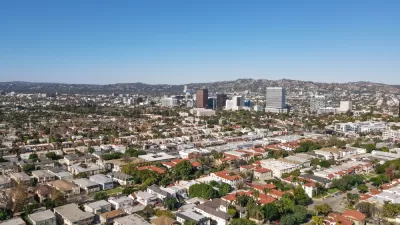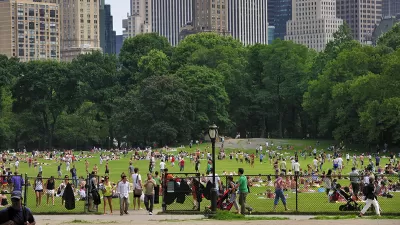Planning Theory

How California Planning has Changed—and How it Hasn't
In the newest edition of his classic book Guide to California Planning, Bill Fulton says there is still tension between the state's suburban planning system and its urban reality.

Embedded Planning Movement Gains Traction
Jonathan Pacheco Bell chronicles the growth of a movement he created.

The Uses Of Urban Theory
Eminent urban scholar Richard Sennett populates Building and Dwelling with rich discussions of history, philosophy, and theory—as well as strolls through contemporary cities.
JPER’s Top Cited Articles: The Debate over Communicative Planning
JPER has existed since the early 1980s but 4 of the top 5 articles date from the mid-1990s to the early 2000s and focus on the theory behind collaboration and communication in planning.
An Integrated Process for Better Urban Planning Outcomes
Urban Planning has become increasingly complex with the rise of big data, inflating costs, diverging politics, and the advent of new technologies. To work with all these elements requires an inclusive approach to produce a useful outcome.
The Orthodoxy of Urbanism
Planners take a prescriptive approach to urbanism, while people have their own ideas about what makes good places that don't fit the standard orthodoxy. Drew Austin says both extremes need attention, and synthesis.
Ferris Bueller: My Kind of City Planner
“Not that I condone fascism, or any -ism for that matter: -isms in my opinion are not good. A person should not believe in an -ism; he should believe in himself. I quote John Lennon: ‘I don’t believe in Beatles, I just believe in me.’ A good point there. After all, he was the walrus. I could be the walrus. I'd still have to bum rides off of people.” —Ferris Bueller
Who Watches the Planners?
In her 1998 book Towards Cosmopolis, Leonie Sandercock deconstructs what she calls the “heroic” story of planning history as found in leading texts. These mainstream histories, she says, may champion various (male) heroes such as Ebenezer Howard, Patrick Geddes or Daniel Burnham, but the real hero, she observes, is the planning profession itself.
The End of Planning (as we know it)
For as often as the Gulf Coast and 9/11 debacles and their aftermaths have been analyzed, one discussion has been conspicuously missing: how starkly those events, natural and man-made, revealed the inability of planning today--however professionally designed, organized and regulated—to contend with the vagaries of circumstances and conditions out of its control.
Urban Design for Planners 1: Software Tools
This six-course series explores essential urban design concepts using open source software and equips planners with the tools they need to participate fully in the urban design process.
Planning for Universal Design
Learn the tools for implementing Universal Design in planning regulations.
City of Santa Clarita
Ascent Environmental
Institute for Housing and Urban Development Studies (IHS)
City of Grandview
Harvard GSD Executive Education
Toledo-Lucas County Plan Commissions
Salt Lake City
NYU Wagner Graduate School of Public Service


































